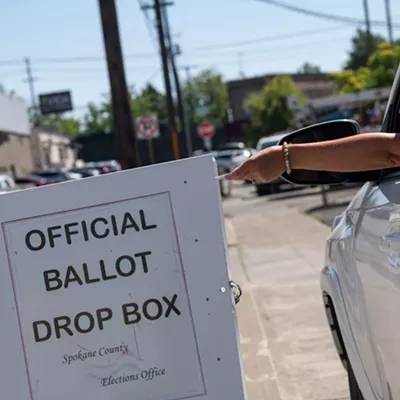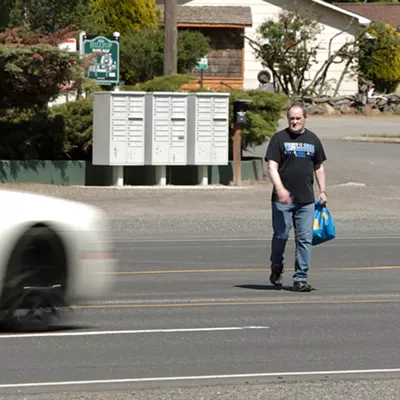Sexy? No.
Exciting? Not so much.
Eloquent, intelligent and definitive? Yes.
The ultimate question for readers is whether they want to be taken by storm or by slow, delicious degrees. Released in May, The Sushi Economy has been getting terrific reviews, including praise from Kirkus and Wired. And Issenberg, a writer for the old George magazine and contributor to Slate.com, is finding out he's not the only one interested in sushi.
& lt;span class= "dropcap " & W & lt;/span & hen did you first perceive this relationship between sushi and the global economy and think, "Now, that's a book"? I did a piece for Philadelphia magazine that ran in the fall of 2002, but I'd been working on it for almost a year. I wanted to know where sushi came from. I'd sit down and have a plate but couldn't tell which ocean a single piece came from. I ended up at a warehouse in Elizabeth, New Jersey, for True World Foods, one of the largest wholesale distributors for sushi in the U.S. A salesman took me around showing me different boxes filled with seafood from all over the world, and it occurred to me how that seafood lands on your table is a case study in globalization.
One of the clich & eacute;s of globalization is that the world is getting smaller. Is it true? I found it's more connected and more complex. Globalization is really about new connections, so decision-making in a global sphere becomes a lot more complicated. Fishermen in Gloucester have to study the daily movement of the yen to determine if they go out and fish that day. Chefs in Tokyo are looking to see if the weather in Gloucester is good that day. In Australia, they're trying to implement tuna ranching. It's an attempt to apply the economics of the factory to a hunter-gatherer trade. People fishing in the wild have to respond to that and make different decisions.
& lt;span class= "dropcap " & I & lt;/span & n the acknowledgements, you thank your parents for that first bite of sushi. Was sushi an Issenberg family staple?
Sushi was probably my favorite food by the time I was a teenager. It wasn't that I ate so much in volume, but it fascinated me, and I was interested in Japanese culture and would try to decipher Japanese baseball highlights. It was all part and parcel of a fascination with Japanese culture and the interplay of America and Japan.
There are passages set in Tokyo with little if any dialogue. Was that a result of the language barrier? Part of it is that the fish market is a very sensory atmosphere, and I wanted to render the experience of being there. It often took a lot of work to get a fish dealer to talk about how he cuts up a fish as a series of business decisions. It must've seemed to them like I was asking the interpreter to repeat a series of mundane questions. But I was trying to inform my descriptions of what they were doing without having it in their voice.
The book, it seems, has a couple of core constituencies: economics buffs and sushi enthusiasts. Do you agree? I'd like to think anyone curious about how the world works today would want to read this book -- because it explains globalization as it's lived, in a way that gets past the platitudes and generalizations. People are increasingly curious about how their food got to them. Omnivore's Dilemma and Fast Food Nation are good examples, and in a certain way this book is a riposte to those, which are founded upon this idea that the more you know about the food you eat, the less you'll want to continue eating it. But this is a case where the more you know about where your food comes from, the less reason you have to be scared.
This interview first appeared in Philadelphia Weekly. ??
















